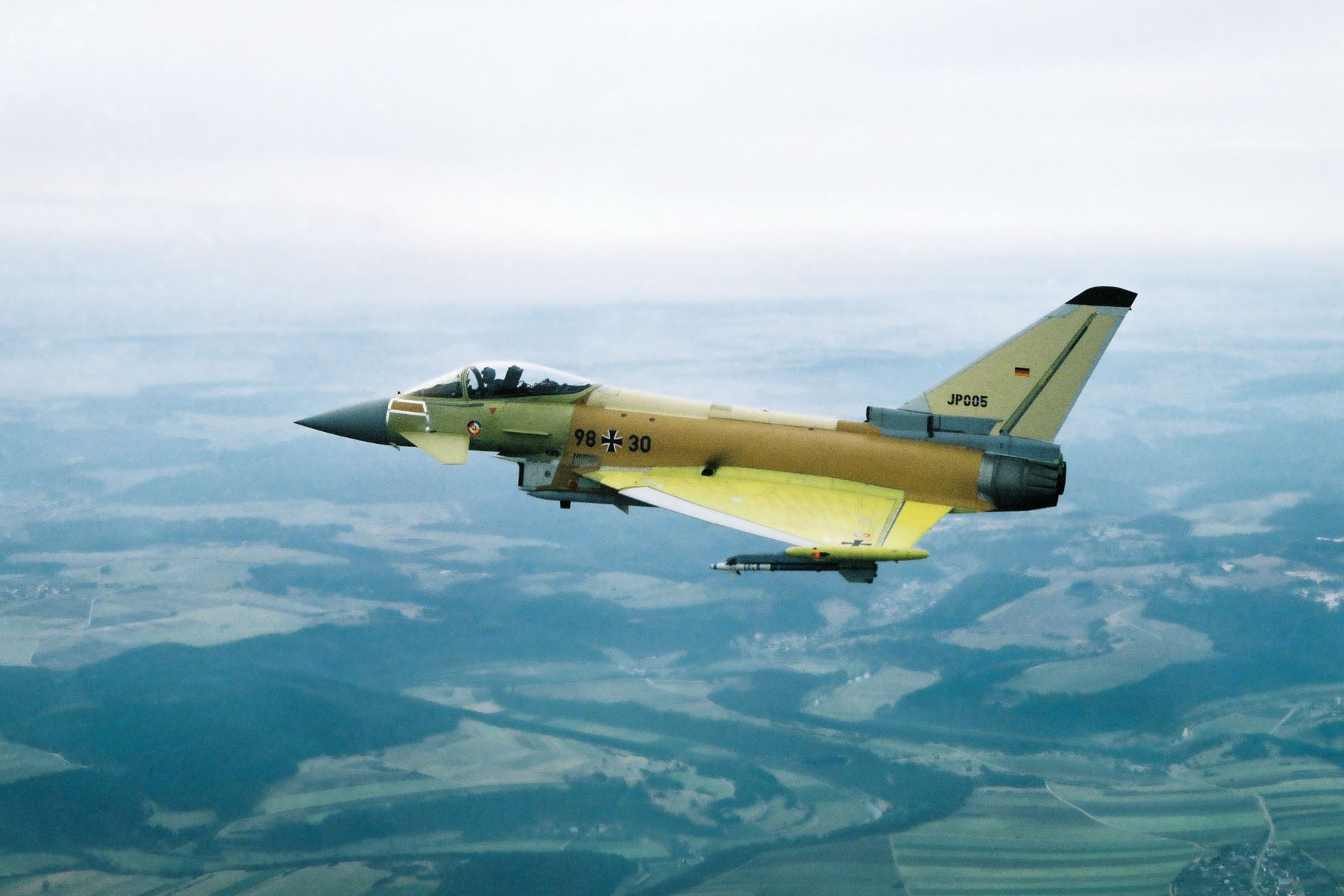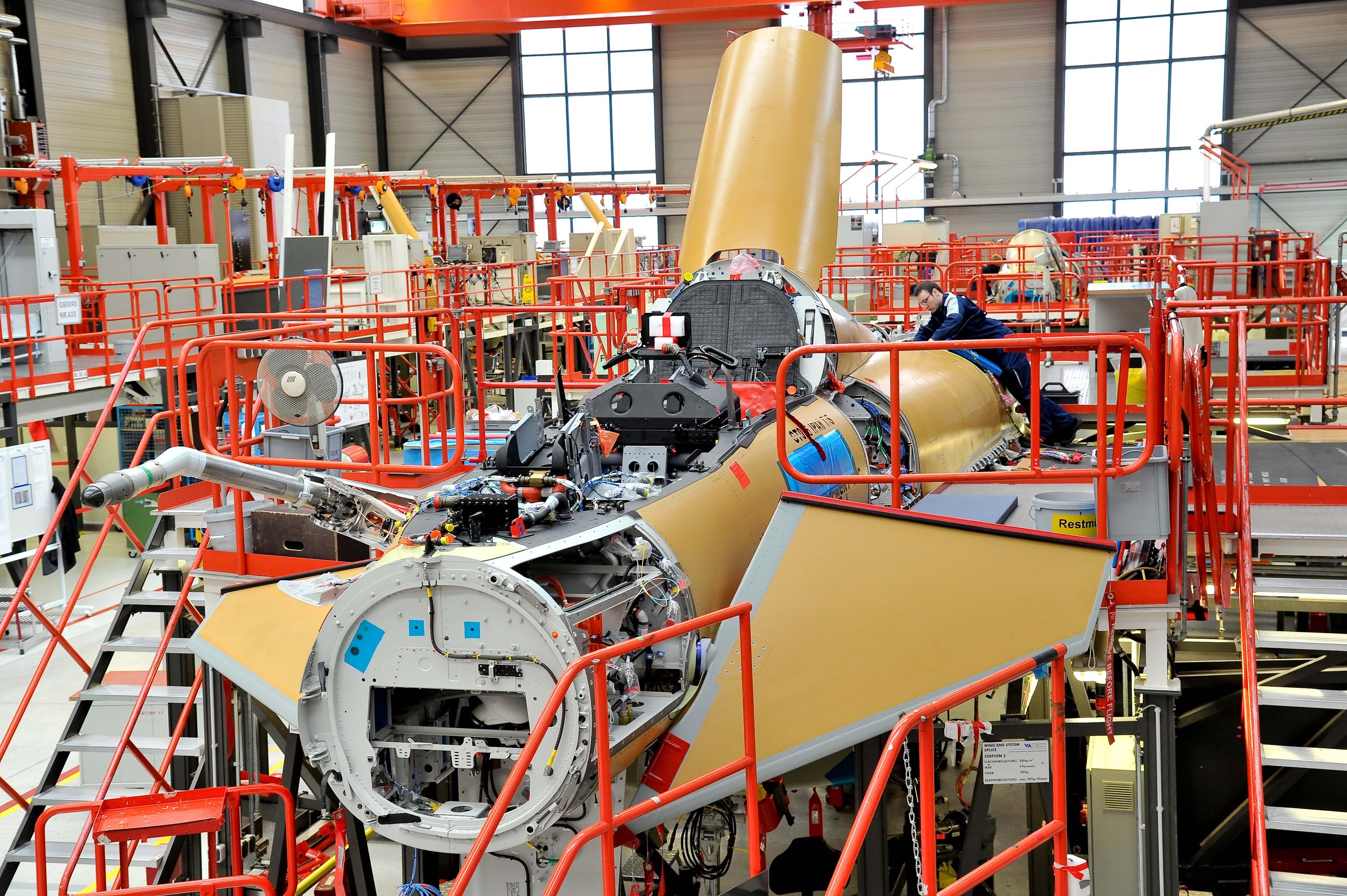From the start, Martin’s career has been intertwined with Eurofighter. He began his career as an engineer in Manching, Germany with Airbus in 1997. Then, as soon as the series production contract was signed for Eurofighter in 1999, he joined the organisation.
The programme was in its infancy and Martin quickly became involved in the planning of the production line for the centre fuse and the final assembly for the German, and later the Austrian aircraft.
He says: “It was amazing because it was the ramp-up of a new production programme for the first time since the Tornado, more than a decade earlier. I was very fortunate. I was in the middle of things, working directly for the head of the production line. It was challenging but we came through it and it was very exciting to see the first Eurofighter Typhoon delivered to the customer.
"When you start a career in the aircraft business you don’t often have the chance to start from the very early stage of such a significant programme. I wasn’t just part of it, I was able to influence it in my daily work.”

His career then took him to various management positions in the Airbus military aviation business. In 2006 he returned to the Eurofighter programme and became responsible Programme Manager for Austria. He said: “Again, I was involved when we delivered the first aircraft to Austria which was a big moment for the programme.”
Later, keen to work abroad, he got the chance to work on the A400M programme in Spain, where he became Customer Programme Interface for the German customer. “It was another highlight in my career,” says Martin. "I was involved in the introduction of the A400M in the German Air Force and in the delivery of the MedEvac capability. There was a lot of pressure to get the best result, but we got there in the end.
When you get the chance to be part of something - like the first aircraft off the final assembly line it is very satisfying. Throughout my career I have always had the chance to be involved in interesting and challenging projects. That is what has always motivated me.”
Making Deadlines Not Headlines
He returned to Eurofighter to focus on production and support. It’s an aspect of the Eurofighter enterprise that is massively important but unlike other parts of the programme rarely makes headlines.
He says: “The outside world will often focus on programmes and new capability, but support is a critically important part of the Eurofighter package. Not least because a large proportion of the revenues that we generate as an industry come from support contracts. And support and aircraft availability is always an important subject for the customer.”
Each Eurofighter Partner Company (EPC) manages the support business for their respective nation. Eurofighter manages the International Support Baseline the National Contracts are based on. And each contract tailored to national demands is different. Martin says that from a Eurofighter perspective, the focus is on maintaining and further developing the International Support Baseline.
This dates back to the foundation of the Eurofighter business. The original contract established a support baseline — customers received spares on base, the Ground Support System was set up and the Technical Publications developed and delivered. Today there is a common international source database for all the technical data modules available that is regularly updated and customised by each EPC for each nation.
“In essence, support is all about enabling the customer to operate the aircraft and achieve their planned flying hours,” he says. “Achieving this industry supports the customers to attain the anticipated fleet availability in line with the planned customer budgets. Working in the support area, our job is to enable that.”

So, what is involved in the international baseline? Explains Martin: “It comprises various different products. There are several Integrated Logistic Support disciplines – these include the likes of Logistic Support Analysis, Reliability/Maintainability/Testability, Technical Publications, Material Support, Data Management, Aircraft Ground Equipment and Training. In addition, we deliver engineering support services through the International Weapon System Support Centre (IWSSC).”
The IWSSC provides technical In-Service Support for all Eurofighter Typhoon Weapon System products. It answers a wide variety of technical questions from maintenance through to the actual operation of the aircraft coming from the Air Forces.
“Each nation has its own national support centre that is interconnected through the IWSSC. If a customer faces technical issues with the aircraft, the first port of call is its national support centre. If the topic is of a more complex nature the IWSSC gets involved. We ensure the solution is relayed to the customer within the contracted timeframe with a satisfactory response.”
Listening Is Key
Martin’s role as VP Operations and Service Support is a demanding one that requires an intimate knowledge of the programme, excellent communication skills and an ability to solve problems.
He says: “Eurofighter is an international business. It means you need to be able to work with people from different backgrounds, different cultures, with different behaviours as well, and with different levels of knowledge. The key is to find the way to make use of this huge diversity.
"For me, when people recognise they can contribute to something it creates great momentum and energy. Our job is to understand an issue, create a solution and deliver it. To do that you need to be open minded and listen to the people. That’s important because nobody has all the solutions in only one hand.
"You need to work with teams because the problems we’re dealing with are so complex and diverse that you really need to work together to resolve them. It's not only about telling it’s also about listening.”
And, given Martin’s track record, no challenge is too daunting.
